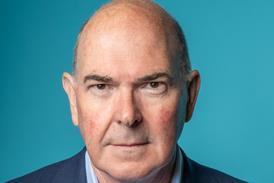- The South London Mental Health and Community Partnership is in discussions with its commissioners over taking control of the region’s £80m complex care spending
- The partnership plans to use the devolved responsibility to support patients out of area and those in locked rehab wards
- The partnership of three mental health trusts has already appointed a joint clinical director for complex care to lead the programme
A partnership of mental health trusts could take over responsibility for £80m of commissioner spending as part of plans to reduce the number of patients in secure rehabilitation wards, HSJ can reveal.
The South London Mental Health and Community Partnership is in discussion with 11 of its 12 clinical commissioning groups to devolve complex care spending to the partnership.
If successful, the partnership will focus on the estimated 1,000 complex care patients currently managed directly by CCGs or in conjunction with local authorities.
Often these patients are placed out of area or in secure rehabilitation placements, which the Care Quality Commission has previously described as an “alarming trend.”
The partnership was set up in 2016 to bring together South London and Maudsley Foundation Trust, Oxleas FT and South West London and St George’s Mental Health Trust to improve care pathways and back office efficiencies.
SWLSG chief executive David Bradley told HSJ that the new programme will be similar to the work done by the partnership in its new care models for forensic and child and adolescent mental health services.
The first phase of the project will be to go out and reassess both the patients in locked rehab and those placed out of area to see if they can be brought back to south London.
Mr Bradley added: “We have data from most of [the CCGs] analysing which patients are where with the intention of reviewing patients, finding more appropriate services for them such as with housing associations that enable people to live a more normal life.
“We also have a large number of people in locked rehab facilities and we are looking at how we can bring them back locally. Can we provide different services and how can we do it at scale?”
Although the CCGs have not signed off the plans, Mr Bradley said they agreed to them in principle and the partnership has already appointed a joint clinical director to lead the complex care work programme.
The only CCG in south London not involved in the plans is Lambeth, which has its own workstream on complex care patients.
Mr Bradley said the new model could be similar to that of Sheffield Health and Social Care FT, which saved £2m since taking on responsibility of the devolved rehabilitation budget.
The partnership has also found more than £4m for new investment in community services.
SLaM chief executive Matthew Patrick said the partnership will not be setting up lots of new complex care beds, but trying to bolster community services and work with housing associations to provide social housing.
He added: “What we are not going to do is build lots of beds locally and bring people back into beds.
“People will need some beds, there are some very complex patients and they will need some facilities. But this is not a mass repatriation.”
Dr Patrick stressed that any savings that come from the new model must be ring fenced to mental health.
“This money has got to be ring fenced on mental health. There will be savings to be made but we want to make sure we can reinvest these.”
But Oxleas acting chief executive Helen Smith said the main principle was making sure patients receive treatment as close to home as possible.
She added: “The key driver around this is patient care. The finance flows along behind it. The principle is getting those people who might not have been reviewed and are far from their family and place they live and bringing them back.”
Source
Information provided to HSJ
Source date
June 2018
Three trusts plan to take control of £80m complex care spending
- 1
 Currently reading
Currently readingThree trusts plan to take control of £80m complex care spending
- 2


























No comments yet